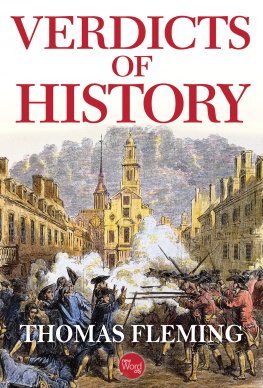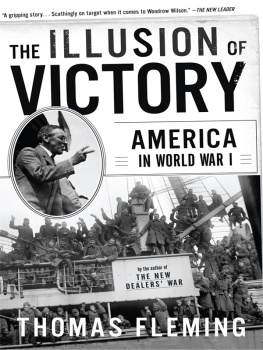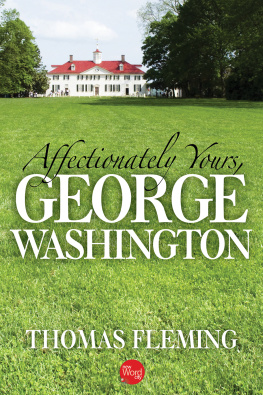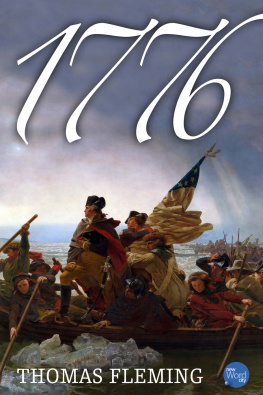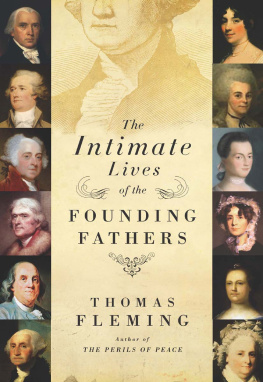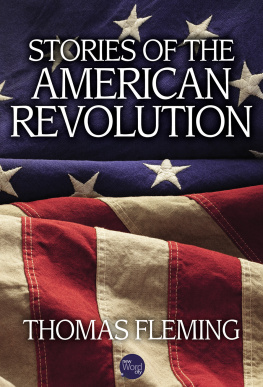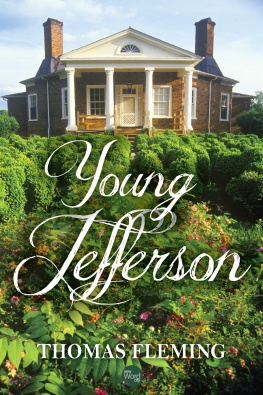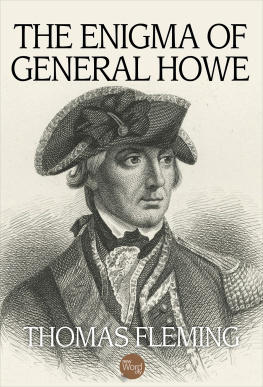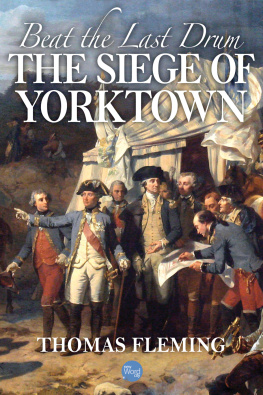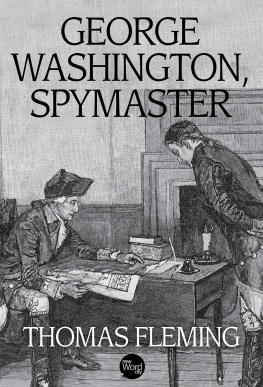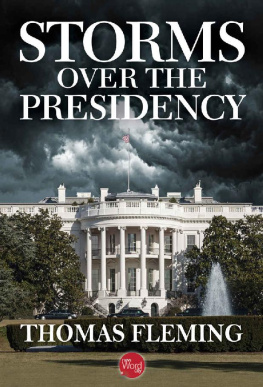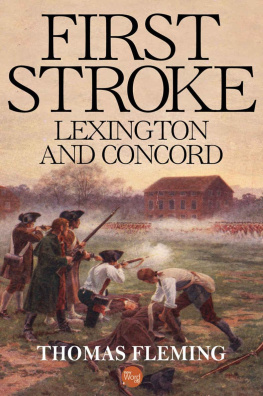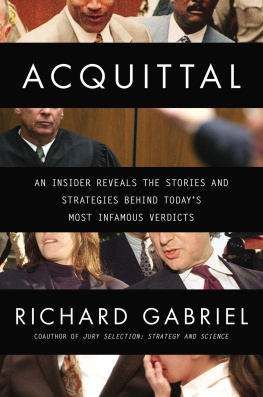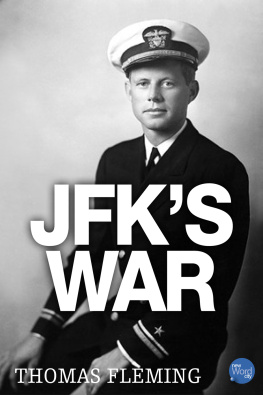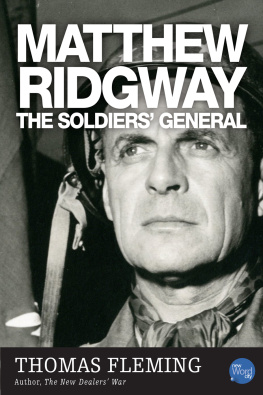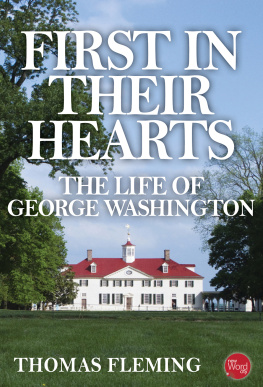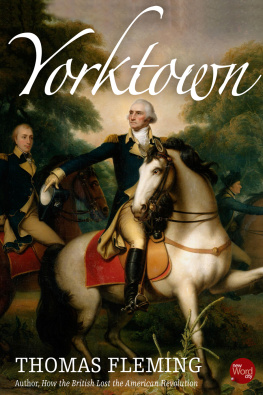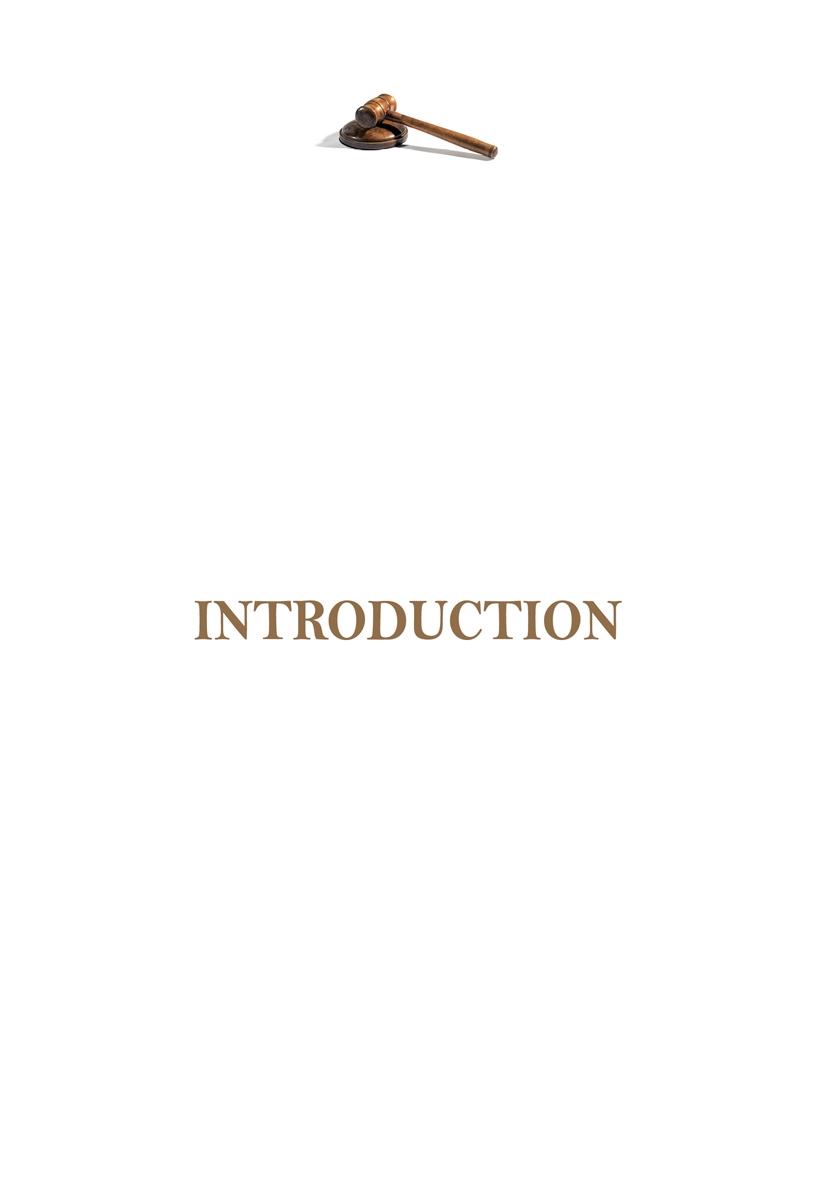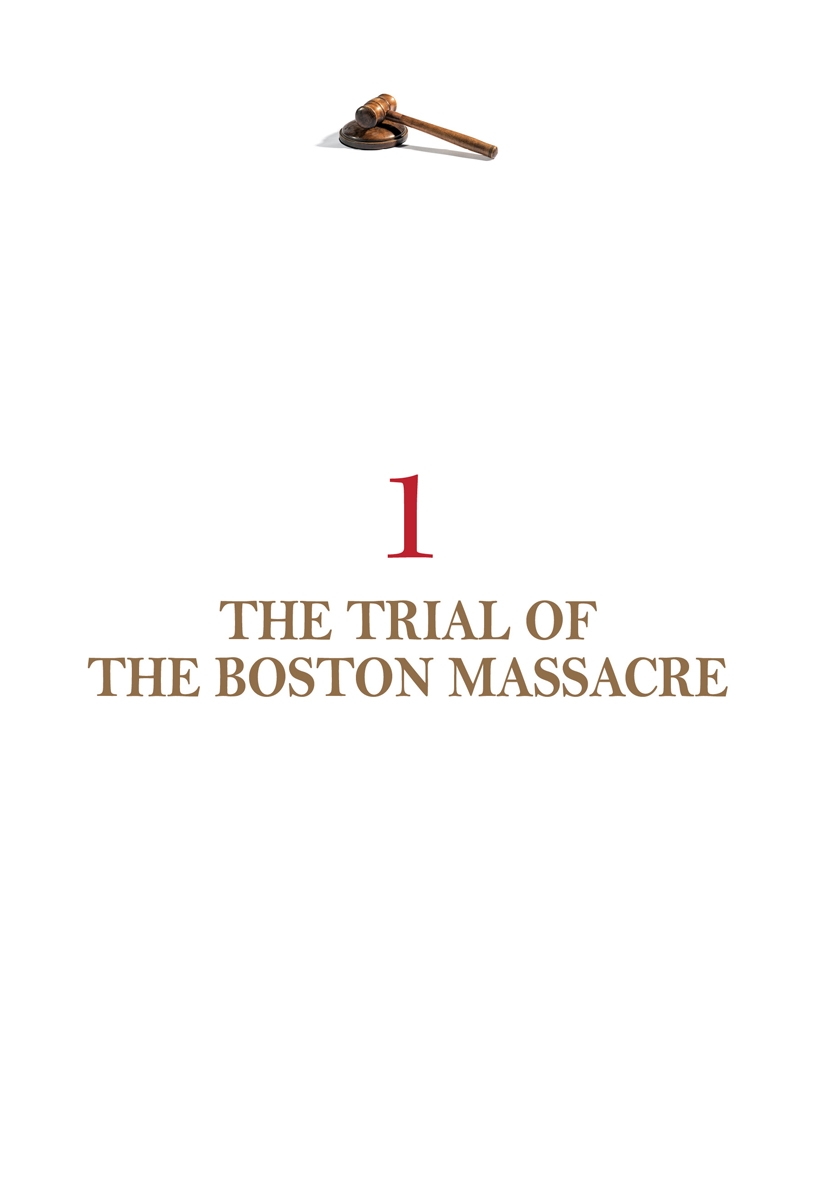Verdicts of History tells us how often Americas future has been changed in the nations courtrooms. In some trials, history has tread with thunderous footsteps before judge and jury. That was eminently the case when John Adams undertook to defend the British soldiers who had perpetrated the so-called Boston Massacre in 1770. The outcome - acquittal - won Americans numerous influential friends in England when the War for Independence began in 1775.
The footsteps were almost as loud a hundred years earlier when Massachusetts Bay Colony judges heard evidence that a group of men and women in Salem, Massachusetts might be practicing witchcraft. Most of the defendants were found guilty and hanged. But few know that the outcome shamed many thoughtful people and led one of the judges, Samuel Sewall, to publicly repent for the verdict.
Even more vivid was historys presence when Aaron Burr, former vice president of the United States, went on trial for treason in 1806 before John Marshall, chief justice of the U.S. Supreme Court. Burrs crime was a plot to separate the western states and create an independent nation in the Mississippi Valley. President Thomas Jefferson publicly declared he was guilty beyond question before the trial began. Marshall barred so much testimony for political reasons - primarily his hatred of President Jefferson - the disgusted jury declared Burr not guilty on evidence presented to us. However, the public found Burr guilty. After a mob tried to lynch him in Baltimore, he was forced to flee the country.
Possibly the most historically vivid of all these dramas was the trial of John Brown, the abolitionist fanatic who committed several murders in the course of trying to capture the Federal arsenal in Harpers Ferry, Virginia in 1859. With stunning charisma, Brown shed his vituperative hatred of the South and slave owners, denied his plan to start a race war, and played the Christian martyr, winning millions of hearts and minds to his cause. His execution set the stage for the conflagration of the Civil War.
Sometimes a trial can be a double-barreled drama in which large ideas mingle with intense political rivalries. That was the case when Alexander Hamilton defended newspaper editor Harry Croswell against charges that he had libeled President Thomas Jefferson when he claimed the nations chief executive had sired children with one of his slaves and had tried to seduce his close friends wife. At stake was not only the freedom of the press but the presidents reputation as he prepared to run for a second term. The trial was so dramatic, the New York state legislature adjourned so they could witness it.
The ongoing drama of Americas race relations has also been the center of more than one courtroom confrontation. Among the most dramatic - and least known - is the 1924 trial of Dr. Ossian Sweet, a black Detroit physician, accused of murder for shooting a white man when a white mob stormed his house. Defended by famed attorney Clarence Darrow, Sweet was found innocent, to the amazement of an America that still tolerated lynch law in the Deep South.
The courtroom has always been an arena in which opposing classes, ideas and ways of life have met in head-on conflict. Even murder can combine a large legal precedent with the standard ingredients of vivid emotion and purple rhetoric. Such was the case when the man on trial was a nationally known congressman, Daniel Sickles of New York, and the victim was Philip Key, the son of Francis Scott Key, author of Americas national anthem. The trial was not only the sensation of the year in 1859, but many people saw it as establishing the unwritten law whereby wronged husbands could avenge themselves with impunity. Of course, it did no such thing, but the idea had a dangerous historical impact.
A trial also is a crucible for distilling the essence of human character. John Adams or Aaron Burr or Alexander Hamilton in action before a jury reveal their personalities. The courtroom enlarges average men and women to historical dimensions when their lives become entangled in large causes and important ideas.
The Jurors for the said Lord the King upon oath present that Thomas Preston, Esq.; William Wemms, laborer; James Hartegan, laborer; William McCauley, laborer; Hugh White, laborer; Matthew Killroy, laborer; William Warren, laborer; John Carroll, laborer and Hugh Montgomery, laborer, all now resident in Boston in the County of Suffolk... not having the fear of God before their eyes, but being moved and seduced by the instigation of the devil and their own wicked hearts, did on the 5th day of this instant March... assault one Crispus Attucks... then and there feloniously, willfully and of his malice aforethought, strike, penetrate and wound the said Crispus Attucks... of which said mortal wounds the said Crispus Attucks then and there instantly died.
Thus, the citizens of Boston indicted nine British soldiers for murder. (The designation of the soldiers as laborers in the indictment emphasized that they were being tried as ordinary citizens - and also that they often eked out their pay by working for hire in and around Boston.) Never before in the history of Massachusetts had a trial aroused such intense, complex political and personal passion. Although his name stands alone in the indictment, Crispus Attucks was not the only victim. Four other Bostonians were also dead in what Samuel Adams, through his mouthpiece Benjamin Edes, publisher of the Boston Gazette, promptly called a horrid massacre. For Adams and his friends in the Liberty party, the trial could have only one possible outcome.
The gist of what happened, whether baldly or passionately stated, was simple enough. Parliaments passage of the Townshend duties (import taxes on lead, paper, glass, tea) had inspired a series of riots and assaults on Royal officials which the magistrates and watchmen of Boston seemed helpless to prevent. On October 1, 1768, the Crown had landed two regiments of Royal troops to keep the peace. Relations between the townspeople and the soldiers had started poorly and deteriorated steadily. After eighteen months, tempers on both sides were sputtering ominously.
Ironically, Parliament was about to repeal the Townshend duties, except for the tiny tax on tea, but the news had not reached Boston when the explosion occurred. At about eight oclock on the moonlit night of March 5, 1770, a sentry on duty before the hated Custom House gave an impudent apprentice boy a knock on the ear with his gun. An unruly crowd gathered. Someone rang the bells in a nearby church. This signal, ordinarily a summons to a fire, drew more people into the street. The frightened sentry called out the main guard. Seven men led by a corporal responded and were shortly joined by Captain Thomas Preston. A few minutes later, a volley of shots left five men dead or dying in the snow and six other men painfully wounded.
For a few hours, Boston teetered on the brink of a bloodbath. The well-armed Sons of Liberty outnumbered the British regiments ten to one, and the local militia was swiftly bolstered by hundreds of farmers who swarmed in from the countryside. Only a desperate speech by Lieutenant Governor Thomas Hutchinson, in which he promised to arrest the soldiers and charge them with murder, calmed the enraged city enough to restore an uneasy semblance of peace.
On the morning after the bloodshed, John Adams, future American president and already a noted attorney, was in his office beside the Town-House steps. Through the door came a tearful, wailing man, James Forest, known as a British toady and scornfully called the Irish infant. The accused leader of the arrested British soldiers, Captain Preston, had begged him to find a lawyer. This had proved difficult. Finally, young Josiah Quincy Jr., from John Adams home town of Braintree, had expressed a willingness on one condition - that John Adams join him in the defense. One other lawyer, Robert Auchmuty, a staunch conservative, had volunteered with the same proviso.

